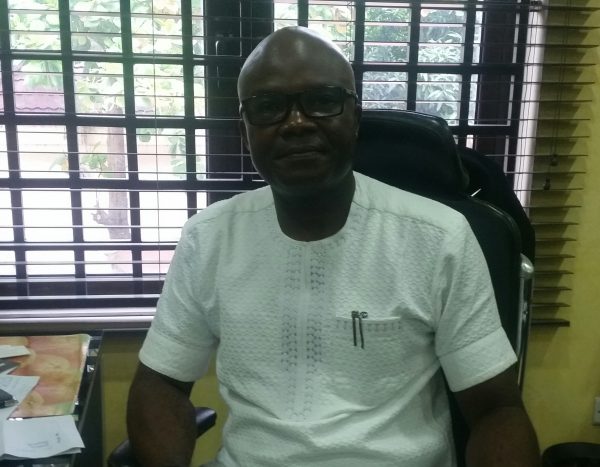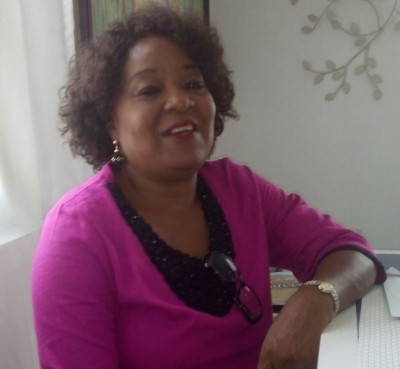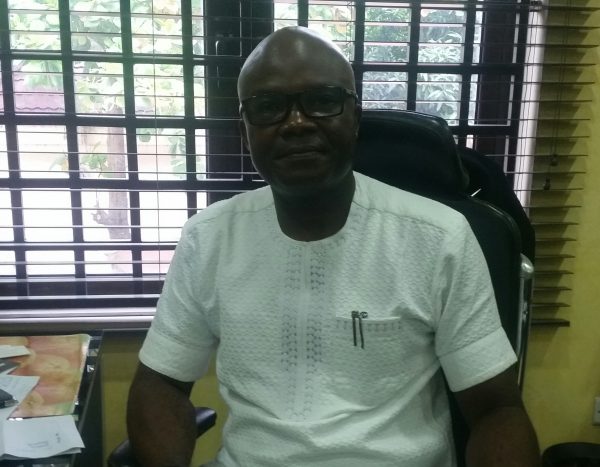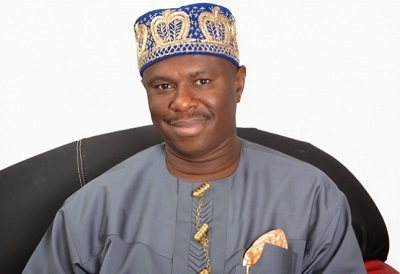Bad Policies, Low Draft Ruining Nigerian Port Business- Amiwero

At the end of the recent 2- day maritime stakeholders conference on “Reforming The Nigerian Maritime Industry” organized by the Federal Ministry of Transport, MMS Plus sat with Mr. Lucky Amiwero, a factional President of the National Council of Managing Directors of Licensed Customs Agents (NCMDLCA). In this interview Amiwero gives his opinion on how best to move the maritime industry forward through such conferences, the problems and possible solutions.
Excerpts…
How significant has this maritime conference been?
Conferences are better suited to educating people but not to resolve issues. Issues are not resolved during conferences because the best person who has the information might not be allowed to give out the best. The best platform to resolve issues is a retreat where experts would come to deliver papers on the problem and the possible solutions. People should also be allowed to ventilate their emotions. However, in conferences like the one we had today, everyone is in a hurry and so one has to be very brief in explaining issues.
Nevertheless, there are some achievements as highlighted in the communiqué. It is one thing to list out these issues in a communiqué but to implement it is another matter. The maritime sector has been bedeviled by setbacks of bad administration and frustration. These are the problems we have been facing for years and we are still on it. I have served in 167 government committees on mostly the same issues we are discussing today. From 1995, we have been deliberating on some of these issues and it is not comfortable to see that these things are still happening without any development.
What are the suggestions that you feel if implemented will move the maritime industry to greater heights?
The syndicate groups came up with some recommendations which include capacity development, reducing gridlock on port access roads, single window etc.
For single window, some people are misconstruing it, Nigeria has the platform. Single window is a trade procedure under WCO (World Customs Organization). It is not a maritime thing, although we have maritime single window which is for ships. Sometimes people who are privileged to have gotten government positions come to such meetings as this and pass wrong the information. This is something I know very much. I was once appointed by the federal government to reform the Nigeria Customs Service and single window was at the centre of the discussion, it was developed for trade.
Single window is not working in Nigeria today because we do have the platform but we have not been able to develop it. It is a procedure where there is a single authority, single automation and single transaction. While the automation refers to the platform, the transaction represents the information gathered and the authority represents the organization that houses the whole thing.
In my opinion, what we have here in Nigeria is better than what is obtainable in Ghana. The problem in Nigeria is that we have not been able to develop the MoU whereby we have a single sheet of data that will represent all the agencies in the ports.
Most of the agencies at the port have their separate minister, for instance, the Standards Organization of Nigeria is under the Ministry of Trade and Investment, Customs is under the Ministry of Finance, NPA, NSC,NIM ASA are under the Transport Ministry, etc. so you see the multiplicity of the issues and all the ministries are equal. The issue of single window just needs to be restricted to ensure that we harmonize all the data and bring them into one platform. Everybody should be able to key into it when it is on one single application, single process and single transaction.
There is a new Standard Operating Procedure (SOP) for port operators and agencies where all stakeholders are to make their modus operandi available in a single platform. Can this reduce some of these problems?
No, this SOP database is quite different from the single window. Single window is for import/export transactions. It means that the transactions for import or export can be carried out via a single platform; thus, all regulatory agencies and other organization related to the ports are available and are accessible through that single platform.
You can’t duplicate the single window because that would lead to the problem of how to harmonize them. In America, there are two of them and there is the problem of harmonization.
There are several issues responsible to the transfer of Nigerian bound cargo to Lome and other neighbouring ports for STS operations. From forex to cost of port operations; draft level, ease of doing business, etc. What is the major problem and how can the nation overcome it?
The truth is that before the forex challenges emerged we have been having issues. Mrs. Uju Ifejika raised the issue of the nation’s low draft level which is a major problem. One of the problems in the maritime industry is that when we have conferences like this, government officials always pass wrong information on issues that the operators who are the major stake holders know are false. Mrs. Uju Ifejika stated that our draft level is low and what she was saying was spot on. The draft level in Lome is better suited for larger vessels than Nigeria. Civil Servants in Nigeria are story tellers, rather than admit that this is an issue; they tried to cover up to convince the minister.
There are many ships that can’t come to Nigeria but they can go to Ghana and Lome which have deeper draft levels. In the case of Ghana, their port is very close to the sea but we have river ports here in Nigeria. The depth levels of these ports are higher than ours and this means some high duty vessels can’t come to Nigeria. Lome, Ghana and Togo have become threats to Nigeria. We are in a system whereby people use their office to pass wrong information and we cannot continue to recycle this information that is wrong.
The problems are so many but bad policies and low draft level of the nation’s ports rank highly.
Since these key issues were not discussed during this summit, how significant has the conference been, did it meet the objectives?
What we have done in this meeting is to reduce our focus to just the two papers presented and participants were not given ample time to analyze and make meaningful contributions. I am happy that the minister realized that things weren’t right. He said it himself when he stated that if things were right, we wouldn’t need the conference. However, the problem is that even with the conference we have not been able to achieve anything meaningful.
Millions have been wasted at this summit, but what have we achieved? Nothing! It was just a waste. How can we be discussing about the single window and the Customs aren’t represented here? Look at Lome, Cameroon and Ghana, etc, they all feed off Nigerian cargo and we keep going over the same problems over and over again.
The former president, Olusegun Obasanjo was surprised that the Nigerian maritime sector was still at this stage. All these years have been a merry-go-round with the industry challenges ever present. Yet, we have children. Where will they work? Most of our freight components have been shipped out as we have lost our transshipment. We also have the wrong people occupying crucial positions in the nation. What does the nation need five deep seaports for? Ad deep seaport is a capital intensive investment and one of its core components is the destination of cargo. 80% of the cargo coming to Nigeria is in Lagos, so what do we need deep seaports in Akwa Ibom, Calabar and others for?
How many industries are available at these locations to service the ports? Shouldn’t the government be advised to use its money to carter for other issues at the state or federal level? These projects are wasteful and probably initiated to embezzle public funds.







